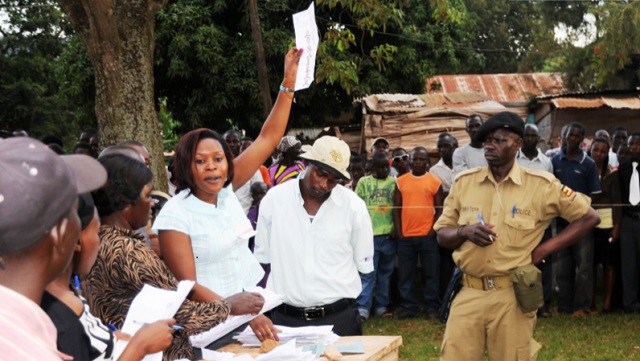
Why the opposition in Uganda needs to take organisation and unity seriously if they are to have a chance
THE LAST WORD | ANDREW M. MWENDA | The nationwide youths elections this week should give the opposition in Uganda, especially the National Unity Platform (NUP), time to pose and reflect. Just as polling commenced, Timothy Kalyegira, a senior journalist in Uganda, tweeted saying NUP, less than two months old, were running “neck to neck” with the ruling NRM. Kalyegira, like many other elite Ugandans, has a habit of relying on his hopes to drive his analysis. And this is the fatal error that has stifled the growth of the opposition.
There is no doubt that NUP and its leader, musician turned politician Robert Kyagulanyi aka Bobi Wine, enjoy large support and generate enthusiasm in Uganda. But this support is largely among the youths in urban areas in a country where 70% of the population are farmers in rural areas. Besides, being new, the party has not yet had time to go on the ground and establish organisational structures to allow it to mobilise people to its cause. Elections are both emotional and mechanical but it is the mechanical (possession of structures) that gives candidates a decisive advantage.
Let us look at these youth elections. Uganda has 68,740 villages. By the time I wrote this article, the Electoral Commission (EC) had tallied results from 59,923 villages (over 90%). The NRM had fielded 47,378 candidates nationwide; NUP came a distant second with 1,433 (3.3% of the candidates NRM fielded), FDC third with 1,133, UPC 537 and DP 536. Practically there was almost no contest between NUP and NRM in the just concluded youth elections. NUP is too thin on the ground to threaten NRM. Kalyegira would, therefore, not have made the outrageous claim of NUP running “neck to neck” with NRM if he understood this reality.
Thus it was not surprising that when results came out, NRM had won 80% of the vote nationwide, NUP and FDC a miserable 2% each, UPC and DP 1% each while independents had won 15%. The issue of independents is even more significant for the opposition. Many Ugandans even at the lowest levels of local government prefer to run as independents than to associate themselves with opposition political parties. It is important to understand why.
Often, Ugandan elites prefer to sit and speculate, imagine and cook up explanations based on their prejudices and biases rather than on facts established through scientific methods like opinion surveys. The opposition in Uganda seems disinterested in winning over people. They know intuitively and through anecdotal evidence that there is widespread disaffection with President Yoweri Museveni’s long, corrupt and nepotistic rule. But they wrongly assume that all those who are dissatisfied with the status quo are enthusiastic supporters of the opposition. Wrong!
There are many Ugandans dissatisfied with Museveni who want change. However, when it comes to elections many of these people do not show up to vote for many reasons. Some are busy with their personal issues (tending to their gardens, shops, hair salons, barber shops, riding bikes, cooking, fetching water, gathering firewood, etc.,) while others are lazy, many apathetic believing that their vote won’t change anything, a belief Dr. Kizza Besigye had hammered home. The opposition in Uganda lack grassroots infrastructure to mobilise these supporters to go out and vote.
The post Lessons from youth elections appeared first on The Independent Uganda:.
from The Independent Uganda: https://ift.tt/3laIfN7
0 Comments